For a Better Tomorrow
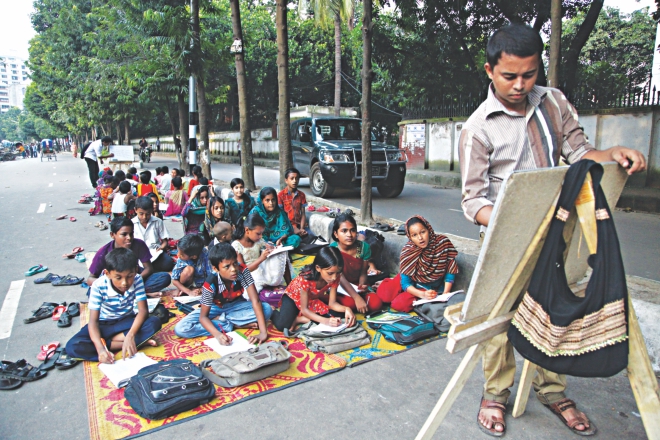
If you take a walk to Shahbagh on a sunny weekday and happen to pass by a footpath next to Aziz Market, you will find yourself looking at an intriguing sight. A group of about 70 shabbily dressed street children, sitting on the side of the road, books open in front of them, looking at a few adults standing next to a blackboard -- an open air school!
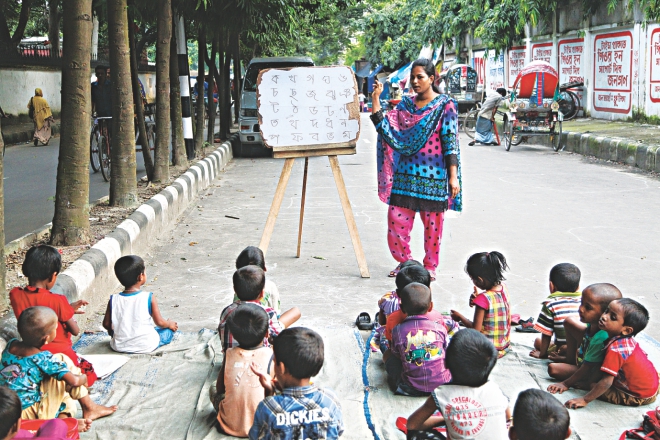
The founder of this unusual school, Nasiruddin Biswas Rubel a student of the Institute of Cost and Management Accountants of Bangladesh (ICMAB) decided to start this project after having stumbled upon a young boy named Ridoy, who came begging to him for money. Rubel took him to a small local restaurant to have a meal instead. There, he unveiled the truth behind Ridoy's misery. He realised that the child had wanted the money for drugs to feed his addiction. Rubel, after having thought about this incident, went to a slum near Shahbagh. He saw many poor children like Ridoy, deprived of their basic rights, getting an education being one of many. Rubel decided to create a school for these street children, and thus began Prothom Shurjo in 2010.
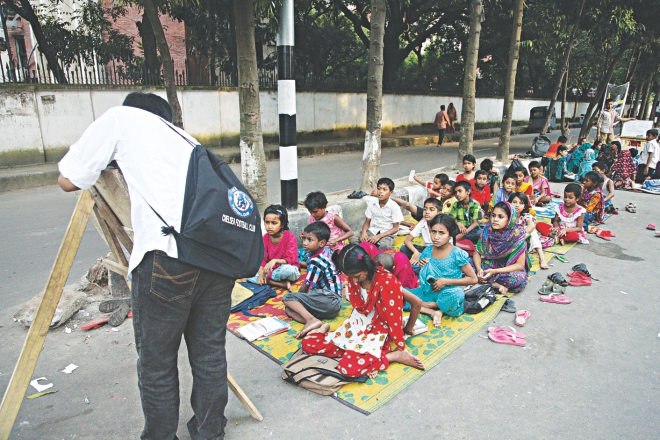
By the year 2011, around 40 students were enrolled and in the past two years, another 50-55 students had been admitted. In total there are now 130 students, from which a large number are eventually sent to attend government schools. Since the students are past a certain age when they begin their education, they are tutored under Prothom Shurjo by students from different universities before they are admitted into government schools.
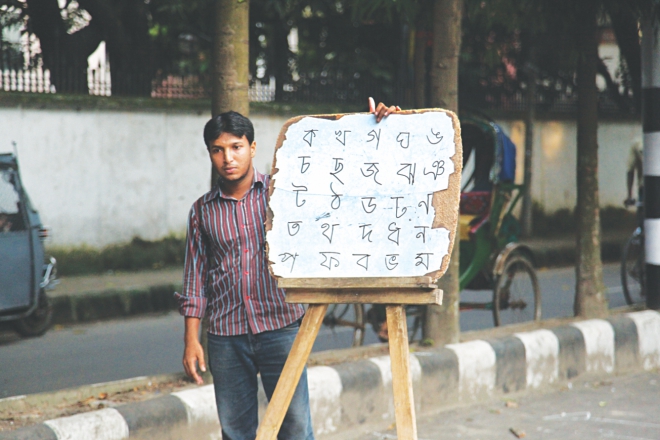
Expenditures for uniforms, stationery, and medical expenses are taken care of by the organisation and its body of volunteers, some of whom are interns at government hospitals. The school meticulously follows the syllabus and books assigned by the education board. Additionally, they provide lessons on issues of awareness and hygiene.
In a country where there are countless uneducated children who grow up to become vagrants or get involved in crime, endeavours such as this provide a great opportunity for them to learn and become productive members of society. The Prothom Shurjo project and others like it have proved that the desire to learn is there, it is just a question of accessibility to a proper education system that is lacking.
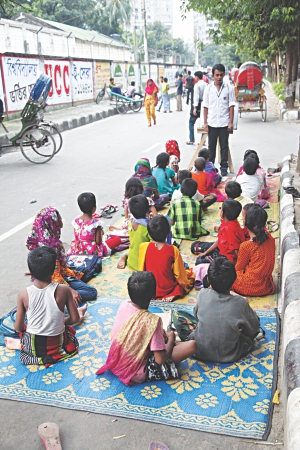


 For all latest news, follow The Daily Star's Google News channel.
For all latest news, follow The Daily Star's Google News channel. 



Comments